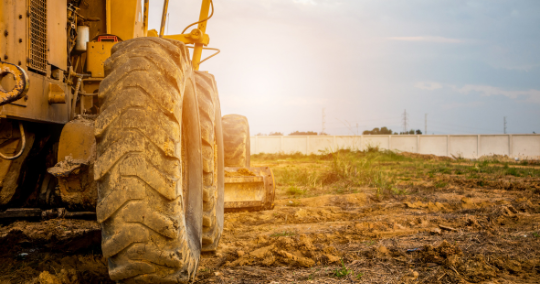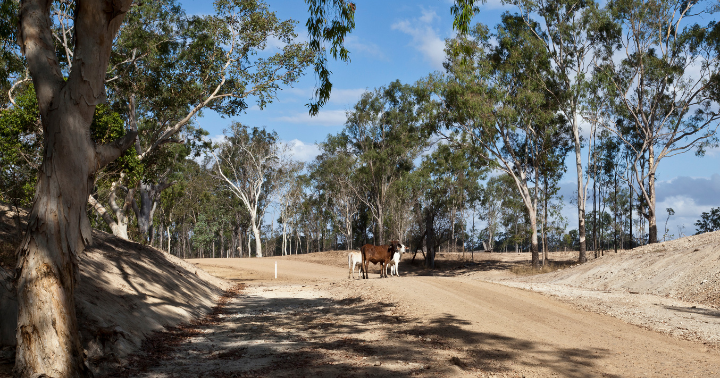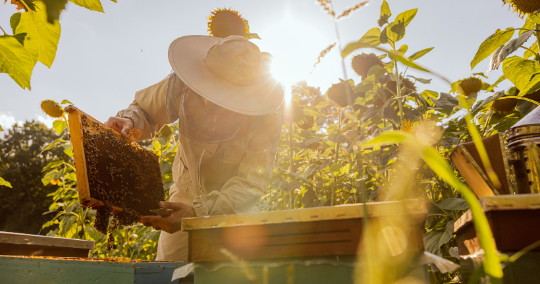
Hobby Farm vs. Farming Business - Understanding GST on Rural Properties
When purchasing or selling rural property in Queensland, it’s essential to understand how Goods and Services Tax (GST) applies. The GST treatment of rural properties can differ significantly depending on how the property is used. Specifically, there is a distinction between hobby farms and farming businesses. Understanding this difference is crucial to ensuring you comply with tax obligations and avoid any unexpected costs.
-
What is the Difference Between a Hobby Farm and a Farming Business?
The key factor that determines whether GST applies to a rural or ‘semi-rural’ property transaction is whether the property is used for a hobby farm or a farming business. This distinction hinges on the primary purpose and scale of the activities conducted on the property and is often misunderstood.
-
What is a ‘Hobby Farm’?
A hobby farm is typically a small-scale rural property used primarily for personal enjoyment and leisure rather than for commercial gain. Owners of hobby farms engage in farming-related activities, such as keeping animals, growing crops, or maintaining gardens, but these activities are not undertaken with the intention of generating significant income. Instead, they serve as a recreational pursuit or a lifestyle choice.
Key Characteristics of a Hobby Farm:
- Non-Commercial Purpose: The primary aim is personal satisfaction, hobby, or lifestyle enhancement rather than profit.
- Limited Scale: Operations are usually small-scale, with minimal production aimed at personal use.
- Supplementary Income: Any income generated is typically incidental and not the main source of livelihood.
- Ownership and Management: Often managed by individuals or families without formal business structures.
- Investment and Expenses: Expenditures are made for personal enjoyment, and there is no significant investment aimed at business growth.
Examples of Hobby Farms:
- A family maintaining a small flock of chickens and growing vegetables for personal consumption.
- An individual cultivating a variety of flowers and maintaining ornamental gardens as a leisure activity.
- A property owner who enjoys beekeeping and selling honey occasionally but not as a primary income source.
-
What is a ‘Farming Business’?
A farming business, on the other hand, is a commercial operation where the primary purpose is to generate income through agricultural activities. Farming businesses are structured to produce and sell goods or services, and they operate with the intention of making a profit. These businesses can vary in size and scope, from small family-run farms to large commercial agricultural enterprises.
Key Characteristics of a Farming Business:
- Commercial Purpose: The primary objective is to produce goods or services for sale to generate income.
- Larger Scale Operations: Typically involves significant production aimed at the market, with higher volumes of crops or livestock.
- Formal Business Structure: Often operates under a registered business entity with formal management and operational procedures.
- Investment and Growth: Investments are made with the intent to expand operations, increase productivity, and enhance profitability.
- Revenue Generation: Income from the sale of agricultural products is a major source of livelihood for the owner(s).
Examples of Farming Businesses:
- A dairy farm producing and selling milk to local markets or distributors.
- A commercial crop farm growing wheat or other grains for sale to wholesalers.
- A livestock operation breeding and selling cattle or sheep for meat production.
-
GST Implications for Hobby Farms
If you are selling or purchasing a hobby farm, the transaction will generally be GST-free. This is because hobby farms are not considered a taxable supply under the GST Act, as they are not connected to a business enterprise. Therefore, neither the buyer nor the seller needs to account for GST in the transaction.
However, it’s important to ensure that the property truly qualifies as a hobby farm and that no significant commercial farming activities are taking place. If the Australian Taxation Office (ATO) determines that the property is being used for commercial purposes, GST could become applicable.
-
GST Implications for Farming Businesses
If the property is used as part of a farming business, the GST treatment is different. In this case, the sale of the property will generally be subject to GST at a rate of 10%, provided the seller is registered for GST and the property is used in the course of the business.
The seller is required to include GST in the sale price and remit it to the ATO. However, the buyer may be able to claim a GST credit (or input tax credit) if they are also registered for GST and the property will be used in the course of their own business. There are some exemptions to this however – you can read about them in our earlier article.
-
So, do I need to pay GST or not?
To determine whether GST applies to your rural property sale or purchase, you’ll need to consider several factors:
- Purpose of the Property: Is the property used for personal enjoyment or commercial agricultural activities?
- Business Registration: Is the seller registered for GST, and are they operating the property as a business?
- Contract Clarity: Does the contract specify whether the sale is GST-inclusive or GST-free under a going concern exemption? Our experienced team at Enterprise Legal can help you get this bit correct!
These factors will help clarify your GST obligations and ensure compliance with tax laws.
-
What Can You Do Next?
Navigating the GST requirements for rural properties can be tricky, especially when determining whether your property qualifies as a hobby farm or a farming business. Getting the right legal and accounting advice early on can help you avoid costly mistakes.
At Enterprise Legal, our expert team can assist you in evaluating your rural property and determining how GST will apply to your transaction. Whether you're buying, selling, or simply exploring your options, we’re here to guide you every step of the way.









